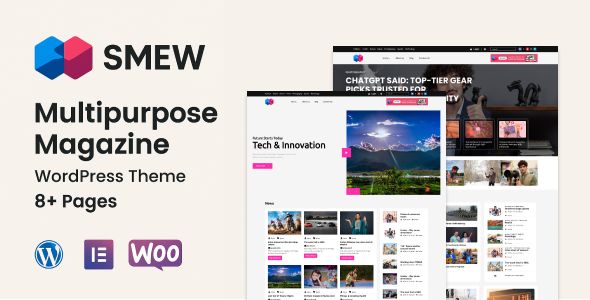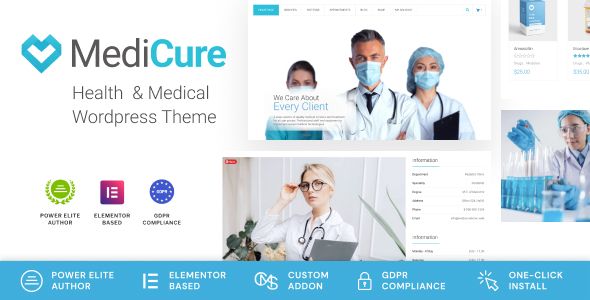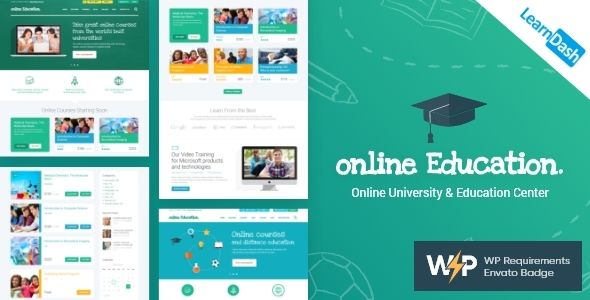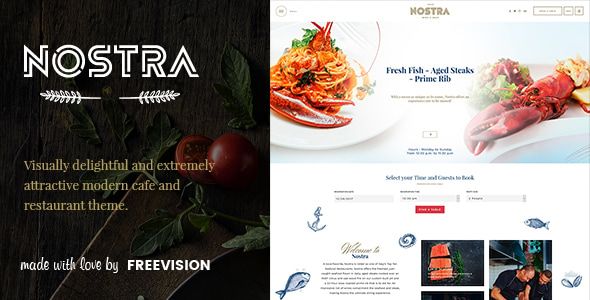Choose Your Desired Option(s)
×
- Description
- Reviews (1)
- FAQ

Studyhub – Education WordPress Theme (Activation-Free, Full Features, Unlimited Sites)
Education doesn’t pause for license paperwork. Semesters roll forward, cohorts enroll, syllabi change, instructors rotate, and your site must keep pace—especially on phones. Studyhub – Education WordPress Theme is built for that rhythm. This edition is delivered activation-free, usable on unlimited sites, with the complete professional feature set, and improvements kept in step with the official release. No serial keys. No domain locks. No recurring “unlock” steps when you clone a campus site, spin up a program microsite, or maintain a dedicated admissions funnel.
Below is a practical, operator-level guide to shipping a first-class education website with Studyhub—whether you’re a university, K-12 district, continuing-ed provider, bootcamp, language school, tutoring center, or edtech startup. You’ll find page architecture that mirrors how learners actually decide, conversion patterns that respect busy schedules, curriculum and faculty modules that build trust, performance and accessibility guardrails, and a realistic rollout blueprint for multi-department growth. Throughout, we highlight how an activation-free, unlimited-usage model removes friction so your team can launch faster, iterate safely, and focus on learning outcomes—not license prompts.
Why activation-free, unlimited usage matters in education
-
Unlimited sites & microsites: Launch a main institutional site, a research center hub, program pages for each department, summer-term and admissions landers, and a staging clone—without counting domains.
-
One-time cost: Test three syllabus layouts, two admissions funnels, and an open-day campaign microsite; keep the winner and archive the rest with no per-site fees.
-
Complete feature set from day one: Catalog cards, program pages, instructor bios, course templates, event calendars, FAQ and policy blocks, blog/insights, application CTAs, donation modules, and more—ready for production.
-
Updates synchronized with the official release: Compatibility and polish arrive on schedule; you choose when to roll them out after validating on staging.
-
No activation hoops: Clone a high-performing degree page for a new program, migrate hosts, or restore backups mid-semester without touching a license server.
Freedom to publish—on your schedule—translates directly to higher applications, better student experience, and calmer marketing and IT teams.
Who Studyhub is for
-
Universities & colleges managing multi-school structures, departments, research centers, and graduate programs.
-
K-12 districts and schools needing staff directories, calendars, announcements, lunch menus, and parent resources.
-
Bootcamps & professional programs offering cohorts, workshops, and career-services pipelines.
-
Language academies & test-prep centers with rolling intakes and placement tests.
-
Continuing education & corporate training where short courses, certificates, and employer partnerships matter.
-
Edtech companies needing a credible product site, documentation hub, and learning catalog.
Because usage is unlimited and activation-free, you can maintain distinct microsites—for admissions campaigns, research labs, alumni giving, or summer school—without juggling per-domain licenses.
The learner decision journey Studyhub optimizes
-
Orientation
A prospective student lands from search or social. On mobile, they see a confident promise, quick program filters, and a primary action—Explore Programs, Apply, or Speak to an Advisor. -
Evidence
They scan outcomes (placement, progression, competencies), faculty credibility, course samples, student stories, and facilities. They want specifics, not brochure-speak. -
Fit & logistics
They check dates, tuition signals, prerequisites, study mode (on-campus/online/hybrid), and time commitment. International students look for visas and language requirements. -
Action
They book an info session, start an application, or ask a question. Any friction here drops completion rates.
Studyhub maps every template to that arc—fast reassurance, credible proof, and friction-free next steps.
Design language: academic clarity with human warmth
-
Readable type hierarchy so claims, evidence, and details are easy to skim on phones.
-
Functional color tokens for information (policies), success (open seats), warning (limited seats), and critical (deadline today).
-
Reusable cards for programs, courses, instructors, events, research, and news keep the whole system coherent.
-
Motion discipline with gentle reveals; nothing competes with “Apply” or “Register.”
-
Accessible contrast & large tap targets to support one-hand mobile navigation.
Branding takes minutes: set palette and type, upload logos/seals, define a photo style (documentary > stock), and the system harmonizes site-wide.
Page architecture that mirrors real academic operations
1) Homepage (conversion-first)
-
One-line promise (“Career-ready learning with faculty who teach and practice”).
-
Primary CTAs: Explore Programs, Apply Now, Speak to an Advisor.
-
Program highlights with filters (level, field, mode, duration).
-
Outcomes strip: placement rate, alumni network size, faculty-to-student ratio, partnerships.
-
Student stories (specific, permissioned quotes).
-
Upcoming events (info sessions, open days, webinars).
-
FAQ slice for admissions and aid.
-
Sticky CTA bar on mobile.
2) Program pages (built to convert)
-
Overview: who it’s for, what you learn, how long it takes, study modes.
-
Outcomes & competencies: specific skills, portfolios, certifications.
-
Curriculum map: semester-by-semester or module sequence with credit counts.
-
Faculty: lead instructor profiles with research or industry practice.
-
Admissions: prerequisites, dates, documents, “what to expect.”
-
Tuition & aid: honest signals (ranges, installment examples).
-
FAQ tailored to the program.
-
CTA cluster: Apply, Book a Call, Request Syllabus, Visit Campus.
3) Course pages (for catalog depth)
-
Synopsis: aims, outcomes, workload, assessment mix.
-
Syllabus snapshot: weekly topics, required texts/tools.
-
Prerequisites & co-requisites.
-
Delivery mode and session schedule.
-
Instructor with office hours and contact policy.
-
Mini-gallery or sample lecture clip if available.
4) Faculty & Research
-
Faculty cards: role, areas, selected work, supervision availability.
-
Research centers: themes, projects, facilities, publications, collaboration calls.
-
Student opportunities: assistantships, labs, capstones.
5) Admissions & Aid
-
Timeline: dates and decision windows.
-
Requirements: documents, transcripts, tests (if any), portfolio notes.
-
How decisions work in plain language.
-
Aid & scholarships: eligibility, deadlines, examples.
6) Student Life & Services
-
Advising, tutoring, disability services, housing, clubs, wellness.
-
Career services: coaching, internships, employer partners, fairs, alumni office.
7) Events
-
Calendars for info sessions, webinars, open days, and academic dates.
-
Registration with reminders and calendar export.
8) News & Insights
-
Announcements (awards, partnerships, research highlights).
-
Guides & resources for prospective and current students.
Everything funnels toward the next right action: apply, book a call, register for an event, or ask a question.
Conversion patterns that reduce friction
-
Sticky CTA bar on mobile (“Apply • Call • Ask”).
-
Progressive forms: collect essentials first; follow up for details by email or portal.
-
Calendar embed for advisor calls with time-zone clarity.
-
Event registration with one-click calendar add and day-before reminders.
-
Downloadables (program guide, sample syllabus) as true decision aids, not fluff.
-
Trust microcopy near forms: “We reply within one business day. Your information stays private.”
Small honest sentences calm anxious applicants and lift completion rates.
Curriculum & competency modeling that feels real
-
Outcomes expressed as skills (“Design responsive interfaces,” “Build RESTful APIs,” “Write for publication”).
-
Assessment transparency (project %, exam %, participation %, portfolio).
-
Workload signals (hours/week in and out of class).
-
Industry alignment (tools, frameworks, standards) without hype.
-
Capstone notes highlighting artifacts students graduate with.
Specifics beat marketing adjectives—and reduce post-enrollment disappointment.
Faculty profiles that build trust
-
Snapshot bios with areas of focus, selected publications or shipped projects, and a one-line teaching philosophy.
-
Office hours and response expectations.
-
Advising availability for research supervision or capstones.
-
Human detail (one sentence) to keep pages warm, not sterile.
Students pick people as much as programs. Make it easy.
Multi-campus, multi-department, and multilingual readiness
-
Shared design system keeps brand coherence; local content stays authentic with real photos and examples.
-
Per-site hours, contacts, and lists for departments or campuses.
-
Language variants with mirrored navigation and adapted microcopy.
-
Region-specific details (visas, funding) on relevant pages.
-
Role-based permissions so departments manage their own content safely.
Unlimited installations make expansion a content problem, not a licensing one.
Performance & accessibility on real student devices
-
Lean critical path: promise, program filters, and CTAs paint first.
-
Responsive images with stable ratios prevent layout shift.
-
Deferred non-critical scripts (maps, embedded media) until interaction.
-
Keyboard navigation and visible focus states across menus, tabs, accordions, and forms.
-
Readable contrast & generous hit areas for thumbs.
-
Form resilience with clear errors and graceful retries on shaky Wi-Fi.
Fast, accessible sites feel credible—and they convert.
Privacy, safety, and inclusive communication
-
Calm privacy notes near forms; keep data only as long as needed.
-
Content guidelines to avoid bias and ensure inclusive language.
-
Accessibility statements plus location-specific wayfinding (elevators, ramps, quiet rooms).
-
Photo consent and de-identification guidance for student stories.
Trust is built as much by boundaries as by features.
SEO that compounds without spam
-
Readable slugs (
/programs/data-analytics/,/courses/psy-210/) and single, clear H1s. -
Schema-ready FAQs for admissions, aid, and program questions.
-
Interlinking that helps humans: program → course → faculty → apply.
-
Evergreen content (study tips, portfolio prep, statement-of-purpose guidance) as real tools, not filler.
Substance + structure beat keyword stuffing every time.
Content strategy that shortens decision cycles
-
Decision aids: “How to compare bootcamps,” “Which language level should I start at?”
-
Checklists for applications, portfolios, and visas.
-
Outcome spotlights: alumni profiles with honest timelines.
-
Event follow-ups: post-webinar recaps with next steps.
-
Program comparison pages for similar tracks (e.g., Data Analytics vs. Data Science).
Each piece points to one clear next step—apply, book a call, or register.
Shop, donations, and community (optional patterns)
-
Merch & bookstore blocks for branded items and course materials.
-
Donations elements (campaign card, impact snippets, pledge forms) for alumni giving.
-
Community pages for clubs, competitions, and hackathons with simple RSVP flows.
Keep transactions clean and mobile-first; minimize distractions at checkout.
Operations blueprint (from blank to live in days)
-
Lock a positioning line: who you serve and what outcomes you enable.
-
Load program data: start with 6 flagship programs; add outcomes, curriculum maps, and faculty.
-
Wire admissions flows: applications, advisor booking, and event registration.
-
Publish two decision aids (e.g., portfolio checklist + “how to choose” guide).
-
Add proof: three permissioned student stories and two faculty highlights.
-
QA on a small phone: tap every CTA, register for an event, start an application.
-
Soft-launch to a warm list; fix friction within 48 hours.
-
Iterate weekly: one new program/case story, one microcopy improvement, one FAQ based on real questions.
Momentum beats perfection—Studyhub makes momentum cheap.
Microcopy you can borrow (and adapt)
-
“Apply in 10 minutes—save progress and finish later.”
-
“Talk to an advisor—get course pairings and timeline clarity.”
-
“See the full curriculum—what you’ll learn, week by week.”
-
“Placement support—coaching, referrals, and interview practice included.”
-
“Rolling admissions—secure your seat; cohorts fill fast.”
Short, specific lines reduce anxiety and speed decisions.
Migration without meltdown
-
Map old slugs for programs, courses, and departments; redirect cleanly to preserve rankings.
-
Normalize images (ratios, sizes) to avoid jumpy galleries.
-
Re-enter critical policies (admissions, privacy, refunds) early.
-
Parallel stage for a week; rehearse applications, advisor scheduling, and event registrations.
-
Cut vanity scripts at launch; add them back only if they prove value.
Activation-free usage means a staging site is just another instance—no hoops.
Why choose this activation-free edition now
Because semesters won’t wait for a license dialogue. Studyhub – Education WordPress Theme provides a calm, credible design system; program and course architectures that read like an academic catalog (without the headaches); respectful lead capture and application flows; and performance/accessibility discipline that makes your institution look as competent as it is. Delivered activation-free for unlimited sites, with the full professional feature set and improvements kept in step with the official release, it lets you launch faster, scale across departments and campuses, and iterate without friction—all while keeping students and faculty at the center.
Frequently Asked Questions
Q1: What exactly do I receive with this edition of Studyhub?
You receive the complete, production-ready theme for education providers: program and course templates, instructor and research modules, admissions and events components, blog/insights, FAQ and policy blocks, donation/merch patterns, and conversion-oriented CTAs—delivered activation-free for unlimited sites with improvements synchronized to the official release.
Q2: Can I install it on multiple domains, sub-brands, and staging sites?
Yes. Unlimited usage is a core advantage. Create department hubs, campaign landers, and a staging clone without juggling serial keys or paying per domain.
Q3: Is this a reduced “lite” version?
No. You get the full professional feature set suitable for universities, districts, bootcamps, and edtech teams.
Q4: How do updates work across many sites?
Improvements stay in step with the official release. Validate on staging, then update production instances when it fits your calendar—no activations required.
Q5: Will non-technical staff be able to update pages?
Absolutely. Departments can edit program copy, add courses, post events, and publish news without touching code.
Q6: Does it support online, on-campus, and hybrid delivery?
Yes. Mark each program/course with delivery mode; Studyhub surfaces filters and badges so visitors find the right fit quickly.
Q7: How can we show tuition without scaring prospects?
Offer honest ranges and installment examples with a short explainer on what changes cost (credits, materials, labs). Pair with an aid/financing block.
Q8: Can we run advisor calendars and event registrations?
Yes. Use built-in scheduling patterns and registration forms with reminders and calendar exports.
Q9: How does the theme handle accessibility?
Defaults include contrast-checked palettes, keyboard navigation, readable type, reduced-motion respect, and sensible aria labels. Validate your final palette and content for your audience.
Q10: Can we separate content for departments and campuses?
Yes. Create microsites or sections with their own editors, hours, contacts, and photo sets while staying inside a shared design system.
Q11: What about international applicants?
Provide region-specific notes (visa timelines, language requirements) and a checklist. Unlimited installs make language variants straightforward.
Q12: Can we highlight career outcomes credibly?
Yes. Use outcomes cards with specific metrics, partner logos where permitted, and alumni stories with realistic timelines.
Q13: Does Studyhub support structured FAQs for search?
Yes. The FAQ pattern is schema-friendly, helping common questions surface in search results.
Q14: How do we keep the site fast during application deadlines or event spikes?
Keep the hero lean, defer non-critical scripts, compress images responsibly, and cache well. The templates prioritize speed; your content choices complete the picture.
Q15: Can we host documentation or a knowledge base for edtech products?
Yes. Use the insights/blog system for docs, tutorials, and release notes with category filters.
Q16: How should we present faculty publications without overwhelming readers?
Show a curated selection and link to a longer list within the same site section; use badges for award highlights.
Q17: Can we gate downloads like sample syllabi or program guides?
Yes. Use a polite gate (name + email) with a clear privacy note; send a follow-up that points to the next step.
Q18: How do we reduce repetitive admissions emails?
Publish a clear timeline, requirements checklist, and schema-enabled FAQ. Add microcopy to forms about response times and document formats.
Q19: Is it suitable for K-12 with parents as the primary audience?
Yes. Add announcements, calendars, staff directories, lunch menus, and parent resources with mobile-first navigation.
Q20: Do we need annual renewals to keep using the theme?
No. You can continue using it without annual renewals. The activation-free, one-time model keeps costs predictable as you add departments, campuses, and campaigns.
Final Take
Studyhub – Education WordPress Theme respects how people actually choose and experience learning: clear programs, credible outcomes, approachable faculty, honest logistics, and an effortless path to apply or ask for help. It equips your institution with program pages that persuade, course and faculty modules that inform, events and advisor flows that reduce phone tag, and performance/accessibility discipline that feels modern and trustworthy. Paired with activation-free, unlimited usage, the full professional feature set, and improvements kept in step with the official release, Studyhub lets you scale across departments, cohorts, and campuses—while keeping your focus on teaching and student success, not license keys.
Share Your Valuable Opinions Cancel Reply
Q: Do I need a license key?
A: No. All products are Pre-Activated. You can use 100% of the Premium features immediately.
Q: Can I use the One-Click Demo Import?
A: Yes, absolutely! We ensure the demo import feature works perfectly.
Q: Can I use the products on multiple websites?
A: Absolutely. The GPL license allows use on unlimited domains.
Q: Are the files safe?
A: Yes. All files are scanned by McAfee and VirusTotal before uploading.
- Includes all Pro features
- Unlimited sites · GPL-licensed
- Malware-scanned & safe download
Table of Contents
- Studyhub – Education WordPress Theme (Activation-Free, ...
- Why activation-free, unlimited usage matters in educati...
- Who Studyhub is for
- The learner decision journey Studyhub optimizes
- Design language: academic clarity with human warmth
- Page architecture that mirrors real academic operations
- 1) Homepage (conversion-first)
- 2) Program pages (built to convert)
- 3) Course pages (for catalog depth)
- 4) Faculty & Research
- 5) Admissions & Aid
- 6) Student Life & Services
- 7) Events
- 8) News & Insights
- Conversion patterns that reduce friction
- Curriculum & competency modeling that feels real
- Faculty profiles that build trust
- Multi-campus, multi-department, and multilingual readin...
- Performance & accessibility on real student devices
- Privacy, safety, and inclusive communication
- SEO that compounds without spam
- Content strategy that shortens decision cycles
- Shop, donations, and community (optional patterns)
- Operations blueprint (from blank to live in days)
- Microcopy you can borrow (and adapt)
- Migration without meltdown
- Why choose this activation-free edition now
- Frequently Asked Questions
- Final Take
















Studyhub – Education WordPress Theme integrates well with my current theme.